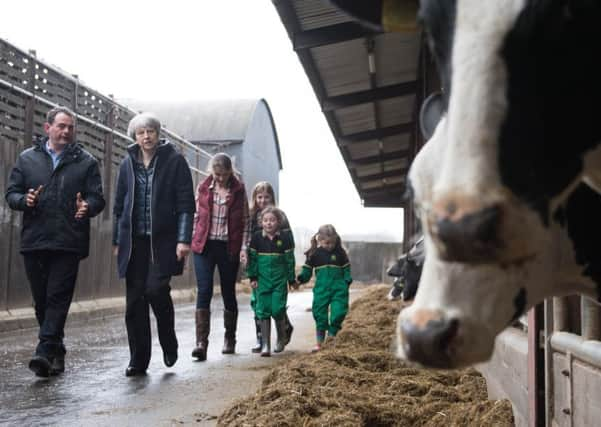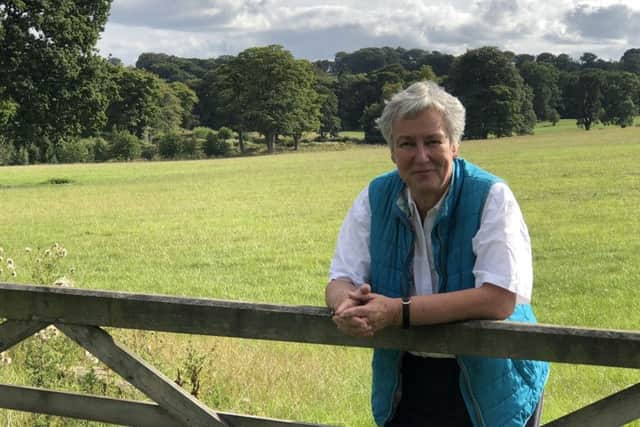Dorothy Fairburn: We can't allow countryside to turn into a fossil


Despite this volatile background, the CLA has been working with dogged determination to ensure our farmers, and the wider rural community, are not only heard but also adequately equipped to face a future outside of the European Union. Avoiding the uncertainty and catastrophic effects of a no-deal Brexit is vital.
A recent study by Sussex University found that no deal would put more than 54,000 jobs at risk in this region. The UK’s future relationship with the EU must include frictionless trade on which so many rural businesses depend. It is now incumbent on all Yorkshire MPs and the Government to work together towards ensuring a deal is in place before Brexit day.
Advertisement
Hide AdAdvertisement
Hide AdFor a long time, the CLA has advocated a policy that incentivises land managers to deliver public good like creating new habitats for wildlife, action to improve soil quality and delivering high standards of animal welfare. In Wensleydale, an associated pilot run by the Dales National Park Authority team has proved so successful that it has been extended.


In May, we published a detailed plan as to how a Land Management Contract should be designed and delivered in England as part of a new national agricultural policy once UK farming transitions away from the current system of direct payment under the Common Agricultural Policy (CAP).
As a replacement for the CAP, the draft Agriculture Bill incorporates the CLA’s general approach to rewarding farmers and land managers for providing public good, but is still scant on detail as to how this will work in practice.
It should also be highlighted that this policy will succeed only if it is balanced with a clear plan for supporting profitable food production, through a transition period and for the long term to ensure sufficient incentive. Our hope is that the Agriculture Bill will take stock of our advice toward its finalisation next year.
Advertisement
Hide AdAdvertisement
Hide AdPolitics aside, the heat and low rainfall over the summer have had a range of impacts on farm businesses and rural areas, as well as on fish and other wildlife. A shortage of grass growth for cattle and sheep, and reduced hay and silage have put pressure on winter feed stocks. Farmers are a hardy breed, but it is undeniable that the impacts of this year’s extreme weather events will still be felt well into 2019.
It is not just farming that has suffered as a result of the weather. The Moorland Association recently reported that around 70 per cent of shoot days were cancelled in the North because of low numbers of red grouse due to the severe impact of this year’s extreme weather on its sources of food.
We can’t change the capriciousness of neither macro-politics nor the weather. However, people who live and work in God’s Own Country know how to adapt to change, especially when driven by influences beyond their control. In fact, this has often stimulated efforts to diversify in the face of an uncertain future. Take North Yorkshire’s Heck Sausages as an example with its recent announcement that it is expanding facilities with potential to export Heckfurters to Germany.
In England, rural businesses currently invest around £13bn each year in, for example, new technologies, generating renewable energy, and a variety of innovative start-ups such as restaurants and distilleries. This investment is crucial for local communities, creating new rural jobs.
Advertisement
Hide AdAdvertisement
Hide AdThe CLA recognises that diversification, coupled with making rural enterprises more resilient, is key to preventing the countryside from becoming fossilised by standing still in a changing world. At our recent Rural Business Conference at Westminster, we launched our Enterprising Countryside Charter which sets our lobbying priorities for 2019 to spray some WD40 into political thinking on countryside matters.
Government can create a more positive environment for rural businesses giving them the confidence to make the new investments needed for a strong rural economy as we adapt to life outside the EU and well beyond.
The CLA’s charter calls on ministers to champion rural roaming, allowing mobiles to switch to any available network in the countryside. Rural areas are still side-lined in the rush for operators’ urban profits and better 4G mobile coverage through rural roaming would vastly help the rural economy.
The CLA will continue to bang the drum on behalf of rural landowners and farmers across Yorkshire and beyond, especially over the coming years, despite the challenges ahead.
Dorothy Fairburn is director of CLA North.